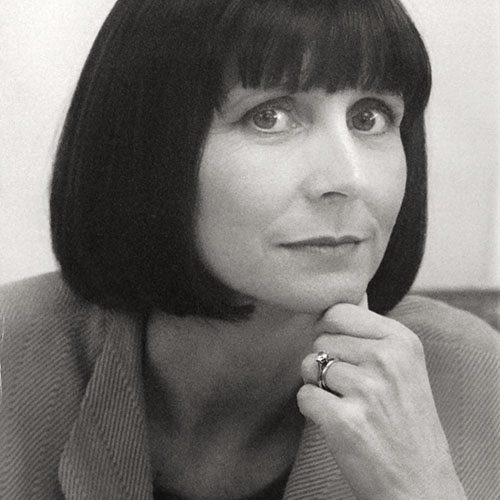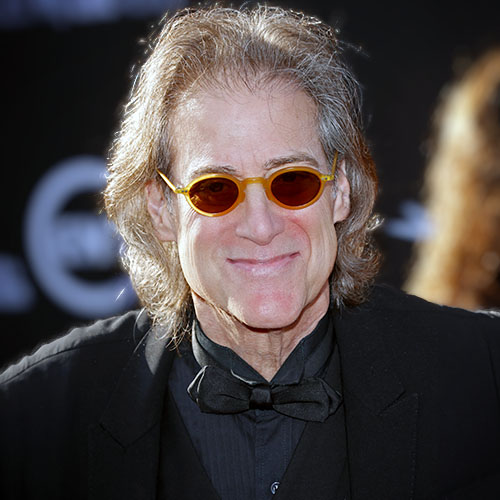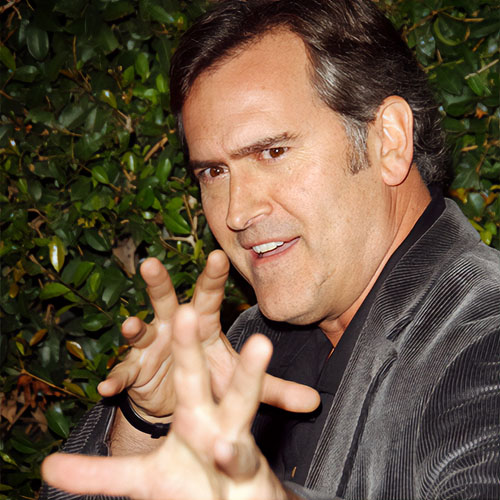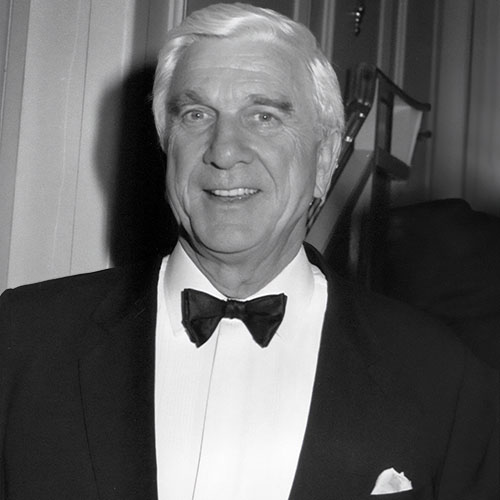Having successfully made the jump from television to movies, one of our biggest fans opens up in a revealing conversation.
John Candy Goes to Hollywood
John Candy, the Orson Welles of comedy, recently won his second Emmy for writing for an unlikely television program, the former late-night SCTV, which has now moved to Cinemax, where two new segments will be shown each month.
SCTV survives because of support from its cult and critics. But Candy has ventured from his Toronto home base for Hollywood, New York, and the movies. Candy knew he was tired of the seven-day-a-week television grind as a writer-performer. How many worthwhile shows and celebrities were left to snipe at? Candy wanted to feel the heat from the side of his former targets. His intentions were made clear when he turned down a chance to become a regular on Saturday Night Live. Instead, he took a turn as guest host. He returned to SCTV this past season for one time only — again, as a guest. Now he is genuinely feeling the heat and enjoying it.
Candy, 32, a native of Toronto, started out with the Toronto and Chicago units of the Second City stage show — the same company that spawned John Belushi, Dan Aykroyd, Gilda Radner, and Bill Murray. When Second City decided to try its own half-hour syndicated television show, Candy signed up as a writer and a performer. After three seasons, he left to front his own show, Big City Comedy. Although the show lasted only one season, it made a star of Candy — in Canada. Then came featured roles in 1941, The Blues Brothers, and Stripes. Just before Stripes was released, SCTV became part of NBC’s late-night Friday lineup.
It was his weird and often sleazy assortment of characters — Johnny LaRue, Harry (“the guy with the snake on my face”), Gil Fisher (“The Fishin’ Musician”), Big Jim McBob (“they blowed up real good”), Mayor Tommy Shanks — and his accurate impersonations of Luciano Pavarotti, Tip O’Neill, Divine, Shelley Winters, and the Beaver that established Candy as a star and a favorite of television’s often dissatisfied critics.
Candy is an imposing figure. He stands six feet three inches and easily weighs over 250 pounds. He doesn’t get lost in the crowd, and when he pulls one of his practical jokes — he once tucked Chevy Chase into a wrestling headlock at a party, dragging him around for several hours — he’s not easily forgotten.
During a six-month stay in Los Angeles last year, Candy was in three movies — a cameo in National Lampoon’s Vacation and starring roles in Going Berserk and the soon-to-be-released Splash, directed by Ron Howard, and co-starring Tom Hanks and SCTV’s Eugene Levy. In Splash Candy plays an avid Penthouse reader who feels the world should celebrate the publication of his “Forum” letter.
California-based freelance writer Robert Crane traveled to Toronto to interview Candy on his 20-acre farm. He lives there with his wife and three-year-old daughter in a rambling home complete with satellite dish tor staying in touch with the programs he won’t be satirizing anymore.
Crane reports: “Candy was an engaging and gracious host willing to answer all questions, although he was usually less than serious. I asked him to describe himself and he said, ‘I’m a nice guy who you could come to if you needed a favor. I’m always saying “no problem” — and that’s always the problem. I’m always overbooking myself.’”
After shooting a few games of billiards, we settled into a corner of his game room, with a well-stocked bar only feet away. Keeping in mind that National Lampoon listed Candy’s name among several other comics in a survey that asked its readers who could be the next to die, I started our talk on one of its few somber notes.
Do you think people, specifically entertainers, have learned anything from John Belushi’s death?
Candy: Never hang out with girls named Cathy Smith. Also, no matter how successful you are, you can, in fact, die. It you have any feelings at all, you have to realize that it was a tragic way to go and it could happen to you. I don’t think John did it intentionally.
People should look at what he gave, how many laughs he brought everyone. Anytime he came on-screen or on stage, people were always ready for a laugh, and he never let them down. What he had was very rare. I’d rather have people think of John as a funny man and as a good man, than as a junkie who died in a hotel room with a big cloud of suspicion surrounding the circumstances. I feel so sorry tor Judy [Belushi] still having to go through all this. There are still unanswered questions about what happened. I hope it will all be resolved and we can move on to other things. John would be real pissed off and tired of it by now.
How did you feel when the press dubbed you “the new Belushi”?
Candy: When I first heard it, it upset me only because it reminded me of John’s death. People are always going to make comparisons. There’s nothing I can do or say that’s going to change that, so I can only keep doing my work. I’m not really giving people any ammunition for the comparison between us, so the less said about it the better.
“To change television, I’d ask Lech Walesa to come over here and organize things a little better. He’d shape things up quickly.”
What is it about you that clicked with the public and distinguished you from the rest of the cast of SCTV?
Candy: It was probably my name. You can remember it easily. And characters like LaRue. They’re a little brash, a little different for television. I think all the characters on SCTV were totally different. They were all a bit sleazy.
Is that what made the show so special?
Candy: There were seven strong characters, and it was one of those rare cases in television that if you looked at it from different angles you could see all the players’ special influence. Everybody shone on that show. We each were supporting players and we each got a chance to star. It was a unique show. Everyone worked equally as hard.
Is there a lot of Johnny LaRue in John Candy?
Candy: Hell, we all have a bit of LaRue in us. We all like to have a good time, to party. That’s why I created him. Here’s a guy who has everything: beautiful women, good times, limousines. LaRue is the enjoyable times, the no-no’s in all of us.
As far as the rest of the cast goes, who is genuinely funny off screen?
Candy: Gene [Levy] makes me laugh. He’s the slowest man in the world. You’d never want to go to a restaurant with him. He takes forever to order. You could be finished with your meal and Gene will be putting on the last touches of salt. His whole manner is funny.
Dave Thomas is very tunny. He has the worst luck with lite. He falls, trips, walks into walls. He’s always in a plaster cast. Physically, Dave makes me laugh. But Dave has a real sharp edge to him. He hates authority. He’ll yell at anybody. He blows real quick. As he’s saying it, he’s realizing that he shouldn’t say it. That makes me laugh.
Joe [Flaherty] is always thinking. He’s like the absentminded professor. You could be talking to Joe for ten minutes and he won’t be listening to you. He’ll be talking about something else. He’s always worrying about how the Pirates and the Steelers are doing.
How did you feel when NBC replaced SCTV with a rock video show?
Candy: That show got a 35 share, which is more than we ever got. There are a lot of people who just want to watch music. There were die-hard fans who stuck with us in the 12:30 time slot. But there were more people, unfortunately, who’d rather watch videos, even bad videos, of bands. NBC can sit back and say, “Well, we got a 35 share.” I say to them, “What about the quality of the show and the Emmys and the way we swept the writing awards two years in a row?” I guess that’s not what they want.
So if you were Grant Tinker, how would you change television?
Candy: One of the first things I’d do is create a position for Lech Walesa to come over and organize things a little better. He’d shape things up quickly.
Then I’d go topless — just go without a shirt — to create an image and set an example. “He’s not only rolling up his shirt-sleeves, but he’s also taking his shirt off. He’s showing everyone he’s a hard worker. He’s saving his network.”
Then I’d put on midget Westerns. And I’d tire everybody with the initial R — straight across the board. Anybody whose first or last name starts with R — you’re tired! R’s don’t work.
It Mr. Tinker just maintains a certain quality and gives his shows a chance, as he’s done with Hill Street Blues and Cheers, he’ll do well. I’d rather go out having a prestigious network that had values and stuck by their guns than to just sell out and try to compete, because there’s no way you can compete with what’s going on. There’s too much programming.
Is your affiliation with Second City and SCTV now totally severed?
Candy: No, I’ll probably guest on the pay-television version of SCTV. I’d love to be part of a cast film after the television show is over. But we’d have to have a good deal and a good idea.
Now that you’re concentrating on movies, are you hoping they make you into a star?
Candy: It depends on what you mean by “star.” If it means a great deal of success and wealth, it sure helps. But I think your work speaks for itself. I don’t know what it takes. I’d rather be working for a long time than be tagged a star and have everybody shoot at you all the time. Whenever you reach that level, people always want to pull you down because you’re there and they’re not. People want to get you off that level real fast. I’d rather walk the fence. It’s a safe, chicken-shit attitude.
Do you have to “go Hollywood” — be at the right parties, eat at the right restaurants — to make it?
Candy: I don’t know where it is. Some people feel that it’s very important to jump in with both feet and immerse themselves in the business and the glamour of what it is or what it is supposed to be. For some it works. They can lunch at a fashionable spot and drive over to the next place, have dinner there, move on down for late-night drinks at another fashionable spot, and that’s their whole day. Then they get up to get their trade papers at their favorite breakfast eatery. They never work. They’re always traveling around. I always wonder: How do they pay for it? Then you find out they’re working at the restaurant, in the kitchen.
I peddle my wares down the street a bit, but I’m a little less obvious. Some people go all out with a garish attitude, flaunting and pushing. People smell blood very quickly in Los Angeles. If you’re hurting and not working, you give out some kind of aura that just exudes “This guy’s in trouble.” Then people stay clear of you. The best projects come when you least expect them. As soon as I start pushing anything in my life or my career, it goes sour. If I take things on a day-to-day basis, they seem to work out a lot better.
Does all the attention ever make you lose your perspective?
Candy: I try not to but I’m sure I do. Having a house in the country makes it a little easier. When I live in Los Angeles for any length of time, there is a tendency to live only show business. How boring. It’s a one-factory town. People you think you know, you don’t know. People you trust, you shouldn’t trust. You don’t know if you’re trusting yourself, or if you’re doubting yourself all the time. Am I telling the truth now? I’m not quite sure. I think I’m being honest with myself. No, no, you’re lying. Sybil starts coming out.
It’s pretty easy to get paranoid.
Candy: Absolutely. The question is, “So what are you doing now?” If you’ re not doing anything, you have to start inventing things. Like, “Yeah, I’ve got a development deal at Universal.” You have to start creating these things, and then you start believing them. You don’t have any deals, but you’re talking as though you do. There are people who make money just doing development deals. You walk through the studios and see all the offices and think, my God, they only make 14 movies a year, yet all these offices are jammed. Why aren’t they doing 200 or 300 movies a year with all these people? They’re paying them. Everyone’s got 20 development scripts and none of them ever gets done.
Does it ever get to you, does show business ever seem meaningless?
Candy: No, not when I’m paying the bills every month. I’m not going to bite the hand that feeds me. I do feel, though, that show business has lost its meaning. Drop your pants and that’s show business today. It doesn’t mean what it used to mean. Today everyone wants a piece of the pie. I know I’ll always work when I see some of the bad acting in television commercials. I know that if everything falls apart on me, if my career just drops off, I can always go out there and sell a refrigerator or gum or dandruff shampoo better than a lot of guys on television.
“My advice for good sex: A lot of mud and vegetable oil. Never say “no” but be careful when you say “yes.” And be careful your wife doesn’t find out.”
Would you ever do a film or television show just for the money?
Candy: Have I? Yes. Recently? No. I haven’t had to do that. There are times when you need to and you have to take care of your family. Sometimes you do have to sell those refrigerators. Or, you can be a true artiste and starve. There are those who do that and I have great respect for them.
Would the public ever accept a serious John Candy?
Candy: I’d sure like to be given the opportunity to find out. But all characters have a humorous side to them — otherwise, they’re not real people. Most of Peter Sellers’s characters were straight. Clouseau was as straight as an arrow. He didn’t want to be funny. He didn’t like people watching him put his foot in a bucket. He tried to be the suave sophisticate, the smoothie. Sellers was a great straight actor. I would love to get roles like that.
Let’s switch gears. Was your first sexual experience traumatic?
Candy: Yes. I was assaulted in an Oldsmobile 88. Traumatic because I wish it could happen that way every day. I’ve racked my brains trying to find her. I wish they were all like that.
Do you have any tips for good sex?
Candy: A good healthy attitude. A lot of mud and vegetable oil. Fifteen eager virgins and a strong constitution. A lot of vitamin E.
Don’t be afraid to ask questions while in the middle of sex. No one’s an expert. Always be prepared to learn and explore new things. Never say “no.” But be careful when you say “yes.” And be careful your wife doesn’t find out. Be in good shape. There’s nothing worse that pulling a muscle or getting a torn hamstring. It’s going to throw your timing off.
How important is your weight to your comedy?
Candy: I still think I could be as funny if I were 100 pounds lighter. I could be more versatile if I lost the weight. When your face is slimmer, there are more ways you can change it with makeup. Psychologically, I would feel better if I was lighter.
But that is how the audience identifies you.
Candy: Sure, the weight works for me. People identify me and know me as being big, and I don’t think there’s going to be any radical change coming up. I don’t think I’m going to do Rocky XII. I’d like to keep my weight down for health reasons. But it’s what you exude, what you put out, what the quality of your work is. I try to do a good job every time. I really don’t think about my weight, I think about my character.
What attracted you to life on this farm?
Candy: I was sitting on the toilet one day reading want ads at our rented house in Toronto, and we were about to have a baby. It was time to move and I had some money for a down payment. I always thought it would be a great kick to live in the country and not have too many neighbors around. I found this place in the classified ads.
Could you ever live in the city again?
Candy: I guess if I had to, but I sure wouldn’t want to after this. It is true that you need a dose of the city every once in awhile. But when I’m not working I’d rather be here.
One of the things I want to do, because my wife and I don’t have the time to raise livestock, is to get movable life-size fiber-glass animals and then move them every day. A horse jumping over a fence. A bird sitting on a partly submerged water buffalo. A giraffe’s neck coming out of a bush.
Could you ever walk away from show business?
Candy: I don’t think so. I don’t know anything else. I’d never make it as a farmer. I’ll never be a good surgeon — I’d make an all-right surgeon. In a pinch, I could do it part-time. I couldn’t do it full-time. As a horticulturist, I’d bomb. I just don’t have the thumb. So the idea of the nursery is gone. I can’t sell cars. I don’t know that much about them. I can’t play pool that well. So I’ll never make it as a hustler. And let’s face it, I’ll never make it as a pro golfer.
One of our artists — a big John Candy fan among many — threw together a bit of an “insider tribute” illustration that we felt obliged to include here. The image quite clearly depicts two of Candy’s most epic films and/or roles in Hollywood movies, and we thought it might be fun for people to try and figure it out. Of course, you could just click on the photo, and the caption will give you the answer, which might actually be more fun for those people who do not like to tease their brains with John Candy trivia. Should you never have seen either of these movies, we must sadly inform you that you have up to this point had insufficient education in your life. You should check here and here in order to learn about these classic shows and then add them to your streaming list as soon as possible. One should understand a reference of Ox on “Teen Beat” it seems to us. One really should.
One can also read about John Belushi and Dan Aykroyd in a contemporary fashion via these very pages, should that sound pleasant.


























The more I watch it, the more I believe that SCTV was the best American sketch comedy series ever.